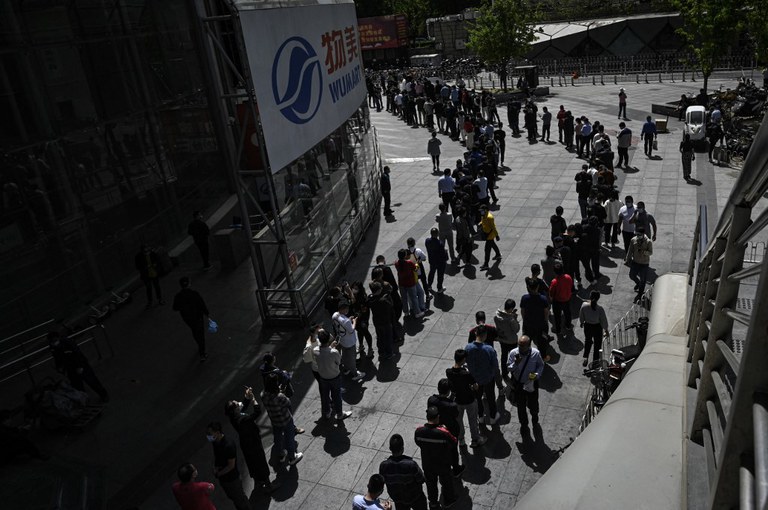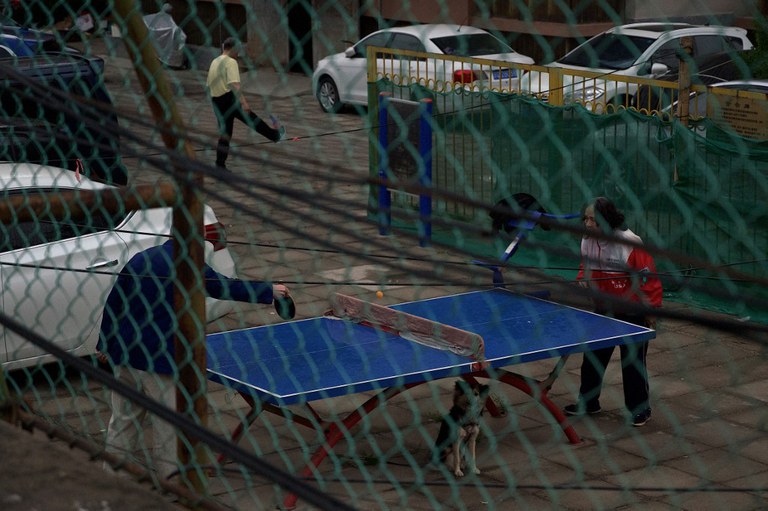Vietnam’s crackdown on corruption in private sector seen as potential turning point
Recent arrests in Vietnam of business leaders amid a larger crackdown on corruption could cause some bumpy days on the stock market and hit the property sector, but a serious housecleaning will improve the overall business climate, analysts told RFA. In late March, authorities arrested Trinh Ban Quyet, chairman of property and leisure company FLC Group and its subsidiary Bamboo Airlines, on charges of stock market manipulation, after he failed to report to authorities his sale of 74.8 million shares in the company in January. In early April, authorities arrested Do Anh Dung, chairman of the Tan Hoang Minh property development group, on suspicion of fraudulent appropriation of assets, after the company issued private bonds between July 2021 and March 2022 while submitting false information and hiding other relevant information about the business. International and local media called these arrests a signal that Vietnam’s largest companies were now a target of the Vietnamese Communist Party’s anti-corruption efforts. “Big companies with long lasting business issues should be very nervous,” Nguyen Van Duc, the CEO of the Dat Lanh Real Estate Company, told RFA’s Vietnamese Service. “This could trigger a collapse of the real estate market, especially in the area dealing with resorts and leisure. Many businesses have invested tens of thousands of billions of dong [hundreds of millions of U.S. dollars] in a resort development project, but purchasing power hasn’t been able to catch up,” he said. Reuters reported that as of Wednesday, Vietnam’s benchmark index had fallen 13.8 percent this month, with investors and brokers partially blaming the recent arrests for the downturn. The market had been steadily trending upward since hitting a low in March 2020 at the beginning of the COVID-19 pandemic. Despite the country’s relative success at keeping the number of cases down for 2020 and early 2021, the pandemic still had a major impact on the economy. “Households still experienced lower incomes, job loss, and hardships. Inequalities, differences in abilities to cope, vulnerabilities, and policy implementation challenges… are cautionary signs and offer relevant lessons to consider as Vietnam faces a much more challenging phase of COVID-19 ahead,” the World Bank said in a report. The turmoil in Vietnam’s economy due to the COVID-19 pandemic is pushing the government to tackle corruption in hopes of speeding a recovery, Duc said. “They’d rather do it earlier than later to avoid an even more damaging collapse,” he said. Authorities have tried to calm investors’ fears about the arrests. The crackdown on questionable dealings of real estate tycoons would have the beneficial effect of easing the rise of real estate prices, said Duc. “During Tan Hoang Minh Group’s case, the government discovered a plot to increase real estate prices in Ho Chi Minh City, and the country in general, when they offered a bid on a property that was 8.3 times higher than the initial offering,” he said. “As a result the government decided to examine the entire company. I think this was a sound action of the government that prevented an unreasonable and dangerous price spike of real estate.” Le Dang Doanh, the former president of Vietnam’s Central Institute for Economic Managment (CIEM), told RFA that the arrests of Dung and Quyet might represent a turning point for the country. “In the short term, some investors will be worried about market fluctuation, but this will bring about a better business environment for the stock market in the long term,” said Doanh. “I believe regulations to prevent corruption like we’ve seen in these cases will be created. For example, there are currently no regulations on bonds issued by enterprises, therefore we have not been able to effectively monitor this issue,” he said. The Tan Hoang Minh group used bonds to raise money for a specific project but then used the acquired capital for other purposes, authorities allege. “Many similar incidents have been discovered. I think that’s a positive sign for Vietnam’s business environment,” Doanh said. More investigations into large companies and arrests of key personnel are likely as the Standing Board of the Central Steering Commitee on Anti-Corruption, under the Politburo, has set up eight inspection teams to detect corruption, local new outlet Vietnam+ reported. During a meeting on Wednesday, members of the anti-corruption committee reviewed their response to FLC and Tan Hoang Minh, a major embezzlement scandal involving the Vietnam Coast Guard High Command, and a bribery case at the Ministry of Foreign Affairs for spaces on COVID-19 rescue flights for Vietnamese citizens abroad, the report said. Investigators have examined more than 1,200 cases involving more than 2,000 suspects. More than 700 cases involving more than 1,500 defendants have been brought to the court, Vietnam+ said. Analysts have said that recent high-profile arrests are intended to demonstrate that Vietnam is getting tougher on corruption. At the same time, the country’s government continues to punish citizens who discuss the cases publicly. In mid-April, authorities arrested Hanoi resident Dang Nhu Quynh for allegedly posting information on Facebook about the arrests of Trinh Ban Quyet and Do Anh Dung, and said that the Ministry of Public Security would continue prosecuting people and companies that are guilty of similar crimes. Quynh was charged with violating state interests for publishing “unverified information.” The law applied in Quynh’s case is designed to prevent the spread of false information that could damage the reputation of people and companies, legal experts said. But many people who have been punished were found guilty even if the information was true. Translated by Anna Vu. Written in English by Eugene Whong.






